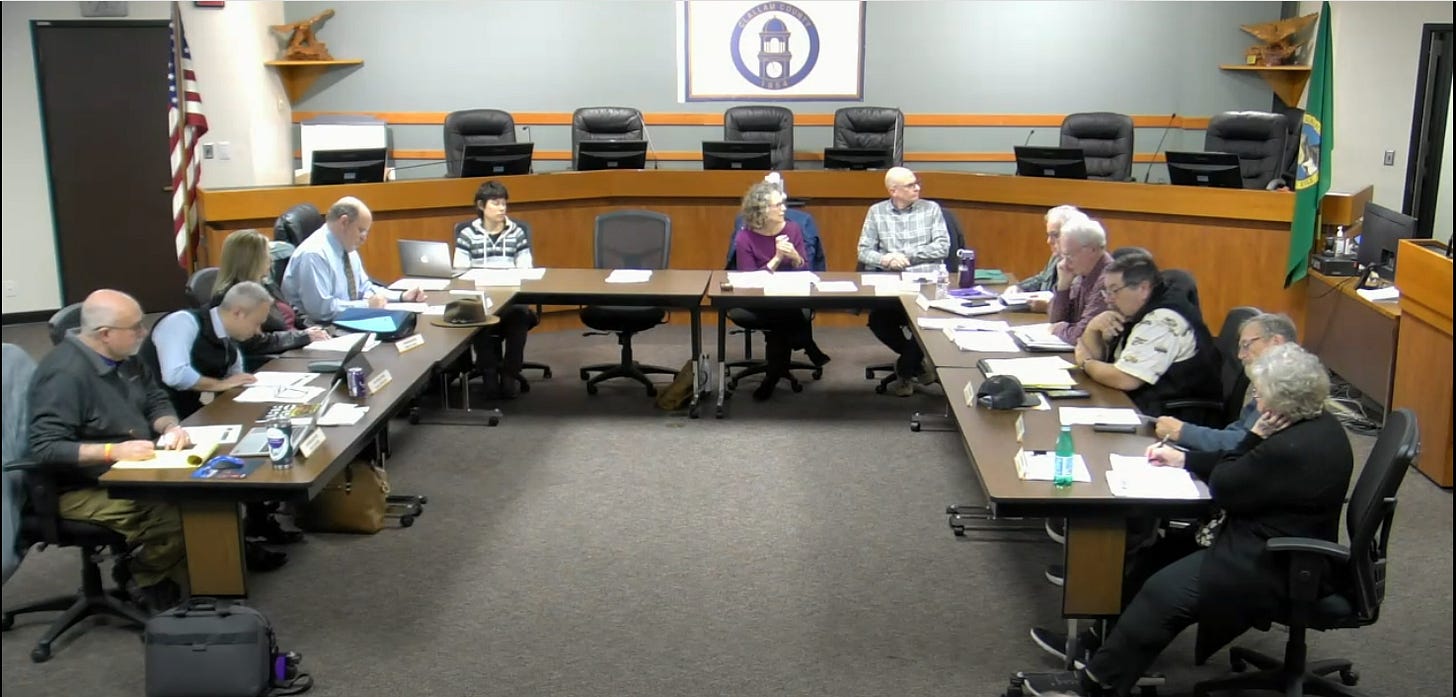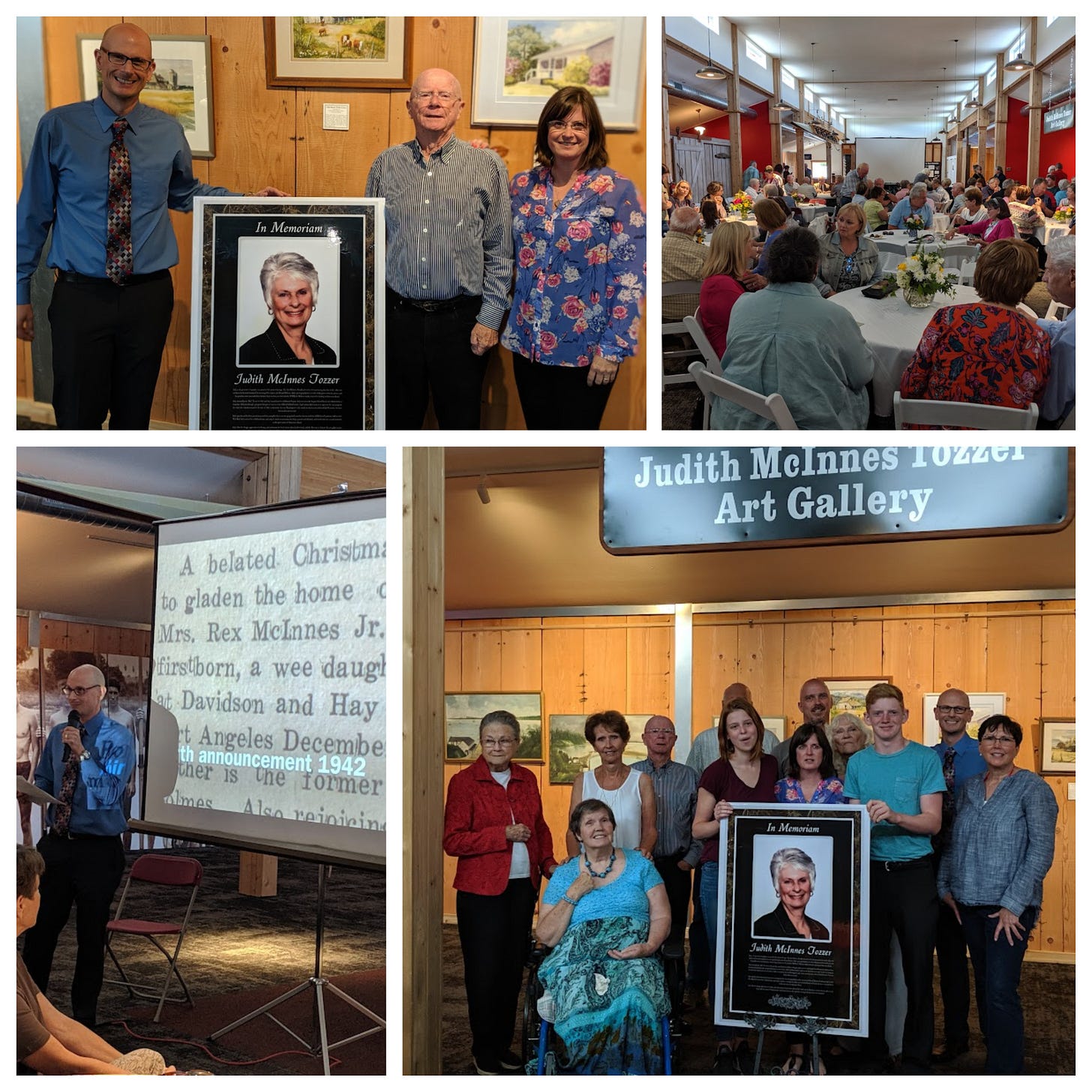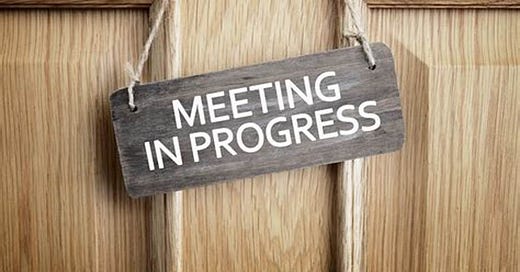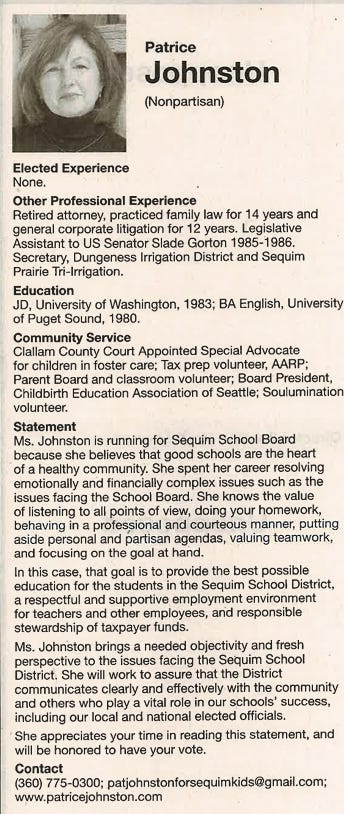Balancing transparency and sovereignty
Charter Review faces debate over public meeting locations
A proposal to host a public town hall on sovereign land has ignited a debate over government transparency. Some insist that public meetings must be held exclusively on county land to ensure compliance with open government laws, while others argue that the location does not affect transparency. An email exchange between two elected officials exposes different approaches to transparency, accountability, and public engagement.

With numerous meetings already held, the Clallam County Charter Review Commission has primarily focused on procedural matters in preparation for hearing from constituents about ways to improve county government. The commission's recommendations will eventually appear on the ballot as voter initiatives for county residents to decide.
While much of the discussion has been procedural, one issue has already sparked controversy, dividing both commissioners and members of the public.
Commissioner Jim Stoffer, representing the Sequim area, provided an update to his 14 fellow commissioners about plans to hold a town hall event. The purpose of the event would be to inform the public about the Charter Review process and gather feedback on desired changes to county governance.
“I’m also looking at Blyn,” Stoffer noted. “I spoke with a representative of tribal properties, and we will probably be able to use one of them without a fee.
I am also a commissioner representing the Sequim area. At that point, I raised my hand to voice an objection. “About a possible meeting in Blyn, what we’ve heard from the public—and I don’t see that it made our list—not to have public meetings on sovereign land.” I explained that it is essential to keep these meetings on public land, where transparency laws unequivocally apply.
Stoffer responded by emphasizing that tribal citizens are also citizens of the county and that holding the meeting at a tribal facility would not compromise transparency. “Everybody votes,” he pointed out.
Public comment weighs in
Later in the meeting, during the public comment period, Sequim resident Patrice Johnston addressed the issue directly.
“I know that the issue has come up several times of this group, or other groups, meeting at the Tribe’s facilities in Blyn,” Johnston said. She clarified that government transparency requirements would still apply regardless of the meeting’s location. “There’s nothing particular about meeting on the campus of the Jamestown S’Klallam Tribe that would prevent those public disclosure requirements from being imposed.”
Johnston went on to express concern that some commissioners seemed to imply there was something improper about meeting on tribal land simply because it is a sovereign nation. “We should stop making those types of statements,” she urged. “They are unfair, and they’re unwarranted.”
Commissioner Ron Richards related an event that happened years ago. He was notably barred from attending a joint meeting between the Sequim City Council and the Navy at the Jamestown S’Klallam tribal headquarters in Blyn, where he argued that city officials violated Washington’s Open Public Meetings Act by (OPMA) participating in a closed-door session. Richards contended that even passive attendance could constitute a violation if council members were forming opinions based on testimony received behind closed doors. The Peninsula Daily News covered the 2015 incident here.
After the meeting, I approached Johnston, thanked her for her comments, requested her email, and promised to follow up. Below is the exchange that followed.
Dear Ms. Johnston,
I wanted to take a moment to thank you for attending the Charter Review Commission meeting on Monday night. I truly appreciate your thoughtful public comment, and I’d like to offer some clarification regarding my preference not to hold meetings on sovereign nation land.
Last April, during the finalizing details of Towne Road's completion, elected officials Commissioner Mark Ozias and DCD Director Bruce Emery, along with appointed staff members County Engineer Joe Donisi and Habitat Biologist Cathy Lear, met with the Jamestown Tribe at their Blyn campus. This meeting, held on sovereign land, led to important decisions about Towne Road's stormwater management and mitigation, which added significant costs to the project, ultimately funded by taxpayers. It also caused delays in its completion. Unfortunately, this meeting was held behind closed doors, with the public not being notified.
A subsequent meeting, months later, involved Commissioner Mike French and Director Emery meeting with the Tribe again. Further decisions were made about a county road—its design and associated costs—without public access. As a result, there is no recording of this meeting, which influenced how taxpayer funds were allocated for a public project.
In October of last year, the County funded and hosted a conference at the Jamestown Tribe’s conference center. This event provided an opportunity to “help shape the climate component of area comprehensive and Hazard Mitigation Plans.” Unfortunately, the event was closed to the public, even though they had funded it and would be directly affected by the decisions made.
I believe these instances would have violated laws that promote transparency and good governance had they occurred on land governed by county policy and state law.
Additionally, I have some concerns about jurisdiction when county events are hosted on sovereign land. For example, if a protester were to disrupt a town hall and break the law, the consequences would presumably be addressed in the Clallam County Courts. However, if this were to occur on sovereign land, would the protester face charges in tribal court or perhaps federal court, requiring a trip to Tacoma? These uncertainties raise questions for me when county business is conducted on sovereign land. I would feel the same if the County were to host a town hall in another country, such as Canada.
Ultimately, my goal is for county business to take place on land where Clallam County and Washington State policies and laws are clearly understood and respected. I believe this approach would make it easier for a broader group of people to feel welcome, comfortable, and included in the process.
That being said, if the Commission decides to proceed with meetings on sovereign land, I will likely determine that the opportunity to engage with constituents outweighs the potential loss of engagement that might result from my decision not to attend.
Thank you again for your time and consideration. Please let me know if I can provide further clarification about my stance.
Sincerely,
Jeff Tozzer
District 1 Charter Review Commissioner
Dear Mr. Tozzer,
Thank you for following up on your offer to provide additional information regarding your opposition to the Commission holding meetings on property owned by the Jamestown S'klallam Tribe. It was my impression that you might provide some type of legal authority indicating that there was something improper about a local government entity meeting on tribal property, but I don't see anything along those lines.
Unless I misunderstand, your issue is not that the meeting took place on tribal property, it is that it took place at all. The meeting could just as easily have taken place in the county's offices. Public employees have meetings like this all the time; not all meetings are public meetings. It does not appear that the Open Public Meetings Act applied here and nothing inappropriate took place. You don't like the decisions that were made and made your views known. That's how the process works.
Once again, from your description this appears to have been an appropriate meeting that was not subject to the Open Public Meetings Act. When projects are underway, the people who are working on them need to meet and talk about them. This is commonplace and normal. Public facilities managers meet with service providers to determine how to do repairs, replace equipment, etc. There are no recordings of those meetings. These discussions "influence how taxpayer funds [are] allocated for public projects" only to the extent they address details of how projects are carried out, and they are within the scope of these individuals' authority to do their jobs.
It appears that you are referring to the North Olympic Peninsula Summit on Energy and Climate Resilience co-hosted by the North Olympic Development Council and Clallam County on October 29-30, 2024. This was a technical professional conference sponsored by numerous public and private entities (including the City of Port Townsend, Jefferson County, Jefferson and Clallam County PUDs, and Pacific NW National Laboratories) working in this area to share information about "energy resilience and reliability projects," among other things. It was also funded in part by the state's Climate Commitment Act.
Once again, it appears that your issue is not that the event was held at the Tribe's conference center, it's that it was "closed to the public." Professional conferences are generally not open to the public, and this one would not have been regardless of where it was held. They are not policy-making events. Discussions at the conference re "help[ing] shape the climate component of area comprehensive and Hazard Mitigation Plans" would have been at a technical level that would then have been incorporated into public policy discussions.
As a retired attorney I disagree and ask you to provide legal authority to support this comment. Otherwise you should stop baselessly accusing people of violating the law, and for good measure, apologize to them and pledge to be more accurate and truthful in your "reporting" in the future.
A quick Google search of "Can non-natives be tried in tribal court?" yields the following answer: "Generally, tribal courts lack inherent jurisdiction to try non-Indians for crimes committed in Indian Country, but there are exceptions, such as for domestic violence crimes and crimes against tribal-enrolled children, where Congress has granted tribes special criminal jurisdiction." Many other resources also show up that can shed light on this question.
Furthermore, there are at least three current and former local law enforcement officers on the Charter Review Commission who I'm sure have dealt with this issue and could answer this question for you.
I'm sure you are aware that many local organizations such as the Chamber of Commerce, the EDC, the Irrigation Festival, and United Way regularly schedule events at Jamestown S'Klallam facilities. There is absolutely no reason for anyone to feel anything other than welcome, comfortable and included there.
You will perceive a common thread in my comments. You have the ability to influence people with your writing, and they trust you to give them honest and correct information. When you represent disagreements as ethical violations, allege wrongdoing when there is none, pose skewed "questions" that are easily answered as a way to create controversy, and stoke resentment between neighbors, you do your readers and our community a disservice. You could choose to use your platform to uplift and build rather than to denigrate and attack, helping your readers to feel good about their community rather than spreading cynicism and fear. You could make a difference for the better. I hope you choose to do so.
Best regards,
Pat Johnston
Dear Ms. Johnston,
Thank you for your email. I appreciate your engagement and would like to clarify my position. I did not intend to suggest that I would cite case law, as I am not an attorney. However, I did some additional research:
Tribal Sovereignty: Tribes are not bound by state laws such as OPMA and may engage in government-to-government consultations without public oversight. Holding a public meeting on tribal land could introduce jurisdictional and access concerns. Tribal lands have their own governance structures and laws, which could impact public access, recording, or enforcement of OPMA requirements.
Jurisdiction on Tribal Land: Crimes involving non-Native persons on tribal land often fall under federal jurisdiction.
Regarding Commissioner Richard’s discussion about the Sequim City Council’s attendance at the closed meeting at the Jamestown S’Klallam headquarters, he raised valid concerns about whether their participation constituted a violation of OPMA. The key issue is not merely the location of the meeting, but whether holding such discussions outside the public eye undermines transparency.
I want to emphasize that my role is not to provide legal opinions, but rather to facilitate the concerns of the public and bring them before the Charter Review Commission. The issue of holding meetings on tribal land is one that has been raised multiple times. While I deeply respect tribal sovereignty and value our government-to-government relationships, I believe that as a commission, we can be creative in finding meeting locations on county land where laws and policies are clearly understood and respected by all parties.
One of the primary concerns is accessibility. Sovereign land is not bound by ADA requirements, which can make it difficult for individuals with disabilities to participate in meetings. Ensuring public access should be a top priority. Additionally, closed-door meetings, like the one Commissioner Richards referenced, further highlight the uncertainties that arise when meetings occur on sovereign land. Whether or not this was intentional, the perception of reduced transparency is damaging to public trust. There is simply too much gray area.
Transparency in local government is paramount, and I continue to be concerned about decisions affecting taxpayer funds being made without public scrutiny. That concern extends beyond town halls and to other instances of governance, including the recent Sequim School bond proposal process under your leadership as a school board member. While I respect your service to the School Board, I believe the lack of transparency in the bond’s presentation—such as omitting key financial details from ballot language and strategically timing endorsements—played a role in shaping public perception. When public officials advocate for measures while sidestepping transparency rules, it raises concerns about fairness in the democratic process.
I appreciate your suggestion that I use my platform to uplift and build our community. Fortunately, I’ve had role models who exemplified this. My mother, who served on the school board during the construction of Greywolf Elementary, championed transparency and community engagement. After her passing, my father continued her legacy and he urged my sister and I to support the construction of the Sequim Museum. At my dad’s request, we established the Judith McInnes Tozzer Art Gallery—a space within the museum dedicated to fostering unity and creativity in our community.

I take my responsibility to the public seriously. Holding elected officials accountable is not an attack; it is a fundamental part of democracy. If I have made baseless accusations, I welcome evidence and will gladly apologize to those affected. Similarly, if you can point to specific instances where I have “stoked resentment,” “denigrated,” or “attacked,” I will take responsibility.
If you have ideas for the Charter Review Commission that serve the public good, I would be happy to support them. I look forward to open discussions that strengthen our community through transparency and accountability.
Thank you again for your service. I hope our community’s youth learn that asking tough questions and demanding transparency are not signs of hostility, but essential practices for responsible civic engagement.
Sincerely,
Jeff Tozzer
Charter Review Commission Town Hall this week
The Clallam County Charter Review Commission (CRC) is kicking off its first town hall event in District 1 (Sequim area), with plans to host similar gatherings in Districts 2 and 3.
Date: This Wednesday, March 26
Time: 5:30 PM – 7:30 PM
Location: KSQM Radio Community Room, 609 W. Washington Street, Sequim (corner of the old JCPenney Plaza)
This town hall will provide a brief overview of the commission’s role before opening the floor for community input. The CRC convenes once every five years to evaluate the county’s charter—its governing "constitution"—and propose ballot measures that county residents will vote on this fall.
Have recommendations for the CRC? Email the Clerk of the Board at loni.gores@clallamcountywa.gov (specify “CRC” in the subject line) or click here.
The CRC meets twice a month at the Clallam County Courthouse in Port Angeles.
For upcoming meeting dates and more information, visit the CRC website here.
This is your chance to shape the future of Clallam County government. The charter review process happens only once every five years—don’t miss your opportunity to get involved!





I can not think of any justifiable reason for anything that affects me to be held on tribal land.
As a tax-payer, I find her to be suspiciously defensive and accusatory.